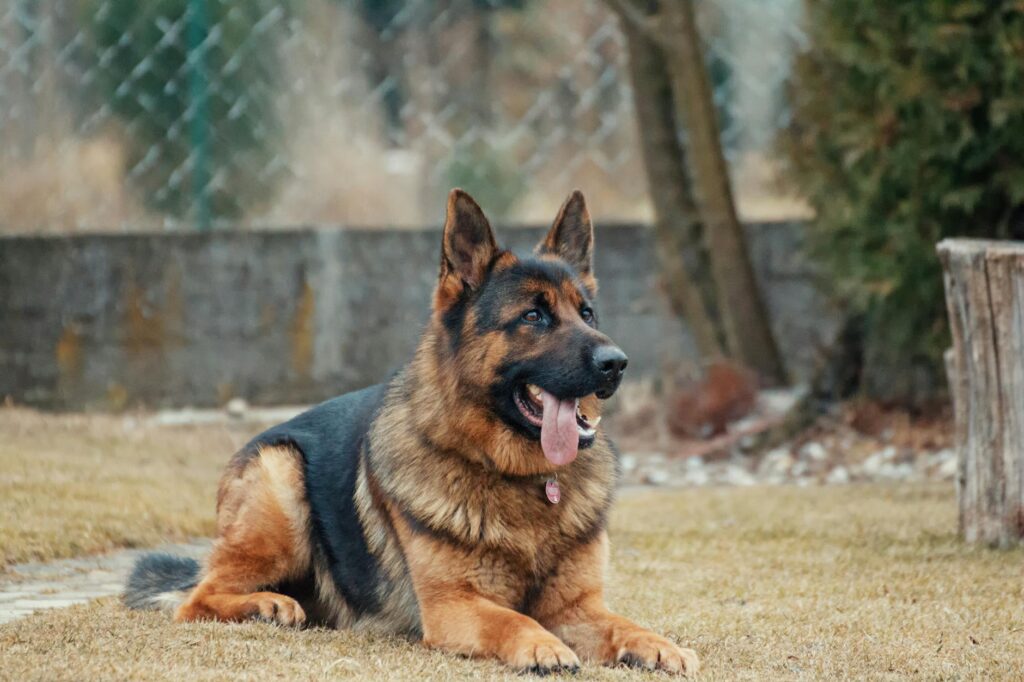
German Shepherds are renowned for their intelligence, loyalty, and versatility. These traits make them ideal working dogs in roles such as police and military service, search and rescue, and as guide dogs for the visually impaired. However, these same traits can present challenges when training a German Shepherd puppy. Without proper guidance, a German Shepherd can become unruly and difficult to manage. Training your German Shepherd puppy from an early age is crucial to ensure they grow into a well-behaved and loyal companion. This guide will provide you with essential tips and techniques to help you raise a German Shepherd that is not only obedient but also a loving member of your family.
Understanding the German Shepherd Breed
Before diving into training techniques, it is important to understand the characteristics of the German Shepherd breed. This understanding will help you tailor your training methods to suit your puppy’s needs.
1. Intelligence and Trainability German Shepherds are one of the most intelligent dog breeds. They are quick learners and thrive on mental stimulation. This intelligence makes them highly trainable, but it also means they can become bored easily if not challenged.
2. Energy Levels German Shepherds are high-energy dogs that require regular exercise to stay healthy and happy. Without sufficient physical activity, they may become restless and develop behavioral problems.
3. Loyalty and Protectiveness German Shepherds are known for their loyalty to their owners and their protective nature. While these traits are desirable, they can lead to issues such as over-protectiveness or aggression if not properly managed.
Starting Early: The Importance of Socialization
Socialization is one of the most critical aspects of training a German Shepherd puppy. Proper socialization ensures that your puppy grows up to be a well-adjusted and confident adult dog. Here are some steps to effectively socialize your German Shepherd puppy:
1. Exposure to Different Environments Expose your puppy to various environments, such as parks, busy streets, and different types of terrain. This exposure helps them become comfortable with new sights, sounds, and smells.
2. Meeting New People and Animals Introduce your puppy to a variety of people, including children, men, women, and other animals. Positive interactions with different individuals will help your puppy develop into a friendly and well-mannered dog.
3. Positive Reinforcement Use positive reinforcement techniques, such as treats and praise, to reward your puppy for calm and friendly behavior during socialization experiences. This reinforcement will help your puppy associate new experiences with positive outcomes.
Basic Obedience Training
Basic obedience training is essential for establishing a strong foundation for your German Shepherd’s behavior. Teaching your puppy basic commands will help you manage their behavior and ensure their safety. Here are some fundamental commands to start with:
1. Sit Teaching your puppy to sit is one of the first commands they should learn. It is a simple command that can help manage your puppy in various situations. Use treats and praise to encourage your puppy to sit on command.
2. Stay The stay command is crucial for keeping your puppy in place when needed. Start by having your puppy sit, then use a hand signal and the verbal command “stay.” Gradually increase the duration and distance of the stay command.
3. Come The come command is essential for your puppy’s safety. It ensures that your puppy returns to you when called, which is particularly important in potentially dangerous situations. Use a cheerful tone and treats to encourage your puppy to come to you.
4. Down Teaching your puppy to lie down on command can help manage their behavior and keep them calm. Use treats and a gentle downward motion with your hand to guide your puppy into a lying position.
5. Leave It The leave it command is useful for preventing your puppy from picking up or chewing on inappropriate items. Hold a treat in your closed hand and say “leave it.” When your puppy stops trying to get the treat, reward them with a different treat.
Advanced Training Techniques
Once your German Shepherd puppy has mastered basic obedience commands, you can move on to more advanced training techniques. These techniques will challenge your puppy’s mind and help them develop further.
1. Heel Teaching your puppy to heel involves walking by your side without pulling on the leash. Use treats and praise to encourage your puppy to walk calmly beside you. Start with short distances and gradually increase the length of your walks.
2. Fetch Playing fetch is an excellent way to provide your puppy with physical exercise and mental stimulation. Use a favorite toy or ball and encourage your puppy to retrieve it. Reward them with praise and treats when they bring the item back to you.
3. Agility Training Agility training involves teaching your puppy to navigate an obstacle course. This type of training is mentally and physically stimulating for your German Shepherd. Start with simple obstacles, such as tunnels and jumps, and gradually introduce more complex challenges.
4. Scent Work German Shepherds have a keen sense of smell, making scent work an enjoyable and rewarding activity. Hide treats or toys around your home or yard and encourage your puppy to find them using their nose.
Addressing Common Behavioral Issues
Despite your best efforts, your German Shepherd puppy may develop some common behavioral issues. It is important to address these issues promptly to prevent them from becoming ingrained habits.
1. Chewing Puppies explore the world with their mouths, and chewing is a natural behavior. However, it is essential to teach your puppy what is appropriate to chew on. Provide plenty of chew toys and redirect your puppy’s attention to them if they start chewing on furniture or other inappropriate items.
2. Barking Excessive barking can be a problem with German Shepherds, especially if they are bored or anxious. Identify the cause of the barking and address it accordingly. Provide mental and physical stimulation to keep your puppy occupied, and use positive reinforcement to reward quiet behavior.
3. Jumping Jumping up on people is a common issue with puppies. While it may seem cute when they are small, it can become problematic as they grow. Teach your puppy to greet people calmly by using the sit command and rewarding them for keeping all four paws on the ground.
4. Pulling on the Leash Leash pulling can make walks unpleasant for both you and your puppy. Teach your puppy to walk calmly on a leash by using the heel command and rewarding them for walking beside you without pulling.
The Role of Consistency and Patience
Training a German Shepherd puppy requires consistency and patience. Dogs thrive on routine, so it is important to establish a consistent training schedule. Use the same commands and techniques each time you train your puppy, and ensure that all family members are on the same page.
Patience is also crucial, as training a puppy can be a challenging and time-consuming process. Remember that every puppy learns at their own pace, and setbacks are a normal part of the training journey. Stay positive and persistent, and your efforts will pay off in the long run.
The Benefits of Professional Training Classes
While it is possible to train your German Shepherd puppy at home, enrolling in professional training classes can provide additional benefits. Professional trainers have the expertise and experience to address specific training challenges and offer valuable guidance.
Training classes also provide a controlled environment for socialization and allow your puppy to interact with other dogs and people. Additionally, attending classes can strengthen the bond between you and your puppy as you work together to learn new skills.
Conclusion
Training a German Shepherd puppy is a rewarding experience that requires dedication, consistency, and patience. By understanding the unique characteristics of the German Shepherd breed and implementing effective training techniques, you can raise a loyal and obedient companion. Remember to start training early, focus on socialization, and address any behavioral issues promptly. With time and effort, your German Shepherd puppy will grow into a well-behaved and loving member of your family, bringing you joy and companionship for years to come.
By following the tips and techniques outlined in this guide, you will be well on your way to raising a German Shepherd that is not only a loyal and obedient companion but also a cherished member of your household. Happy training!
